Spring greens may already be old hat, but homegrown berries and imported peaches are still some way off: with the best citrus now behind us, we’re still in the so-called hungry gap for fruit. So here come root veg to the rescue in this fudgy, south Asian classic – to quote Meera Sodha, “If eating carrots as a pudding strikes you as odd, remember how good a spiced carrot cake is.”
Prep 10 min
Cook 45 min
Serves 4
6 cardamom pods
4 cloves (optional)
Grated nutmeg, or a pinch of ground cinnamon, to taste (optional)
500g carrots
25g ghee
Salt
250ml evaporated milk
A pinch of saffron (optional)
50g soft light brown sugar
50g white sugar
A handful of raisins or sultanas (optional)
20g milk powder (optional)
A handful of shelled pistachios, almonds or cashews
A few pinches of desiccated coconut (optional)
1 Crush the cardamom (and any other spices)
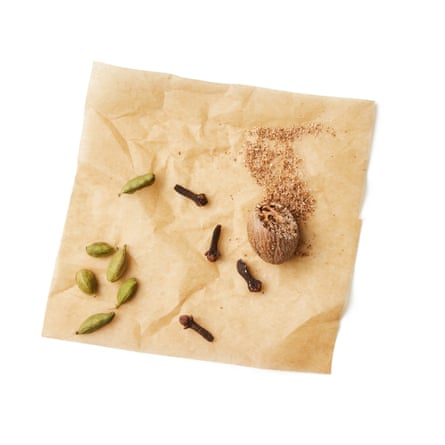
Gently crush the cardamom pods just to open them, remove the seeds, then roughly crush to a powder in a mortar (or use the flat of a heavy knife). For a more complex flavour, you could also crush four cloves to a powder and/or add a generous grating of nutmeg or a pinch of cinnamon.
2 Prepare the carrots
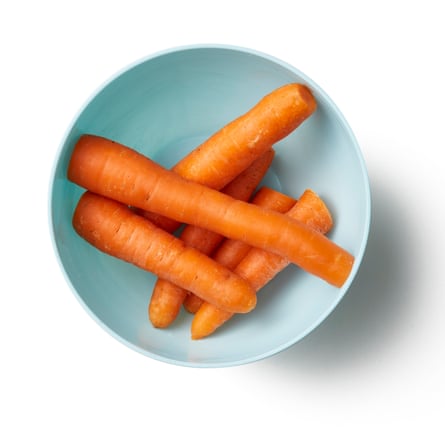
Peel or scrub the carrots clean, then coarsely grate them. If you’re in a hurry, or a smoother consistency appeals, you could grate them more finely, which will mean the dish cooks more quickly, but I prefer the more robust, uneven texture of coarsely grated vegetables.
3 Fry the cardamom (and other spices)
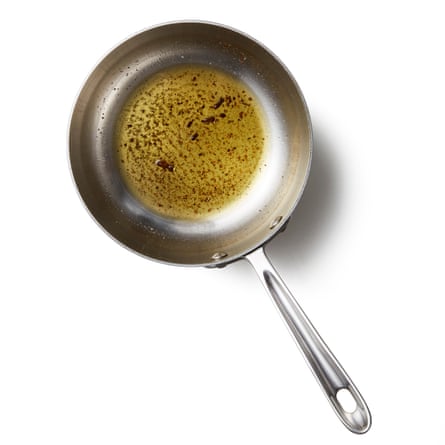
Put the ghee in a wide, heavy-based pan on a medium-high heat (you could use butter instead, but if so, take care that it doesn’t burn), then fry the ground cardamom (and other spices, if using) for a minute or so, until aromatic.
4 Stir in the carrots
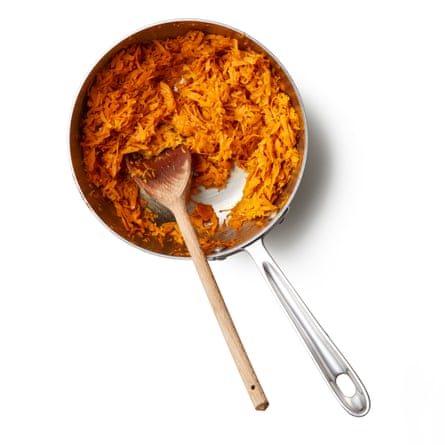
Add the grated carrots and a pinch of salt, turn down the heat a little, stir to coat the carrot with ghee and spices, then fry, stirring constantly, for five minutes. Turn up the heat and cook, stirring, for 10-15 minutes, until the carrots are soft and dryish; take care they do not catch and burn.
5 Add the milk and saffron
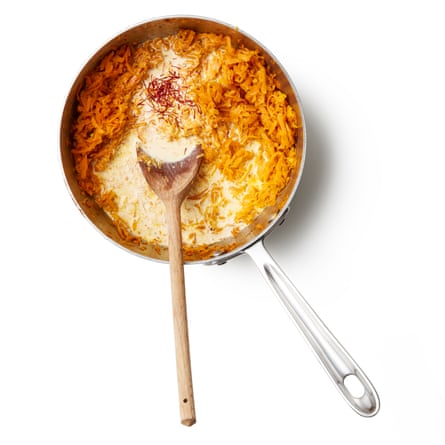
Pour in the evaporated milk (you can substitute 500ml fresh milk, if you like, but it will take longer to cook and lack the subtle tang of the evaporated stuff), then stir in the saffron, if using – as well as its flavour, the saffron will help give the dish the traditional red hue associated with the more deeply coloured variety of carrot popular in south Asia.
6 Simmer to reduce
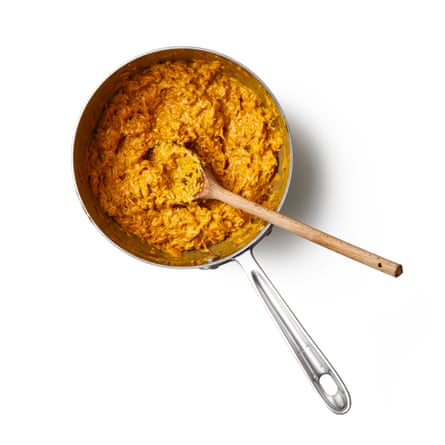
Turn down the heat to medium and simmer the carrots, stirring regularly, until most of the liquid has evaporated, leaving a wet, but not saucy mixture – depending on the pan you’re using and the strength of your hob, this should take about 20 minutes.
7 Mix in the sugar and dried fruit
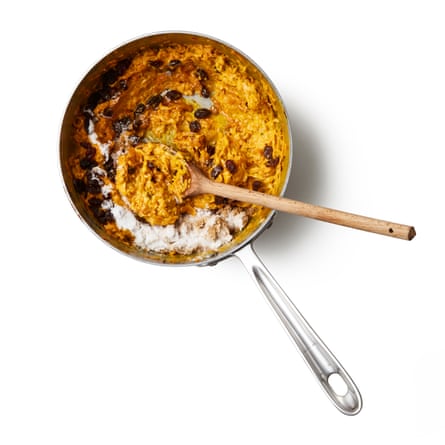
Add the sugar and dried fruit, if using (if you’re not a vine fruit fan, you could use just about anything you fancy instead, from chopped dried apricots or dates to crystallised pineapple or dried banana), and continue cooking, still stirring regularly, until the mixture thickens enough to hold its own shape.
8 Add the optional milk powder
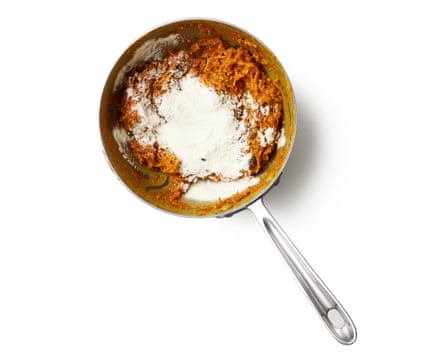
Stir in the milk powder, if using – though optional, it will give the halwa the rich flavour and slightly grainy texture characteristic of many Indian sweets – and cook for another minute or so. Leave to cool slightly while you chop the nuts to sprinkle on top (desiccated coconut is also a nice addition). Check the seasoning and adjust as necessary before serving.
9 A variation on the theme
To really impress, caramelise the nuts first, as Sodha suggests in her book Fresh India. Melt 60g butter in a small pan, then, once it’s foaming, stir in 80g nuts (she uses pecans), a tablespoon and a half of powdered jaggery or brown sugar, and a third of a teaspoon of garam masala. Stir until the sugar melts, then tip the nuts on to a heatproof tray lined with baking paper to cool.
"food recipes" - Google News
April 26, 2023 at 06:00PM
https://ift.tt/K0vbql1
How to make carrot halwa – recipe - The Guardian
"food recipes" - Google News
https://ift.tt/gv1C8ot
https://ift.tt/MfNns0q

No comments:
Post a Comment